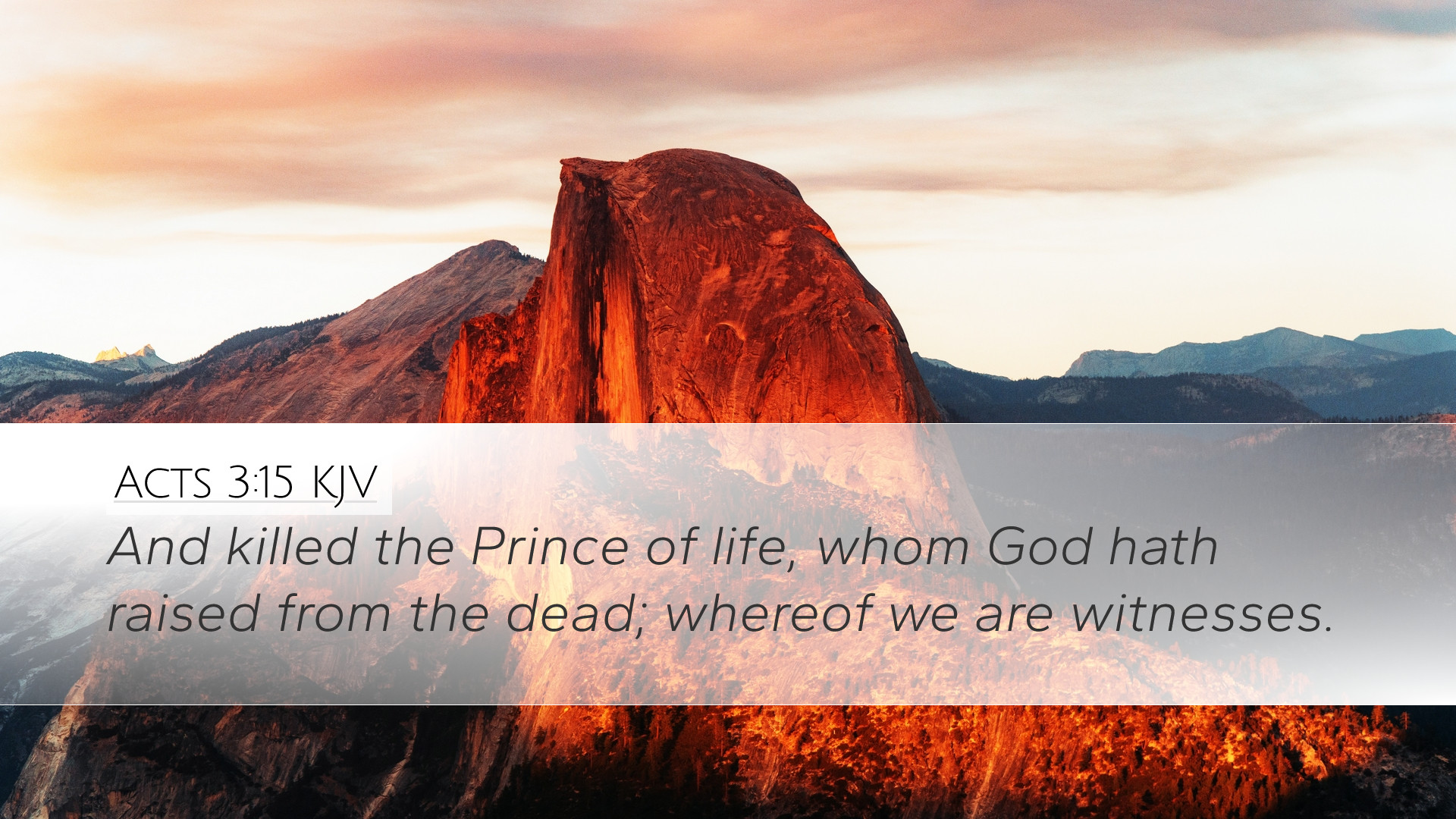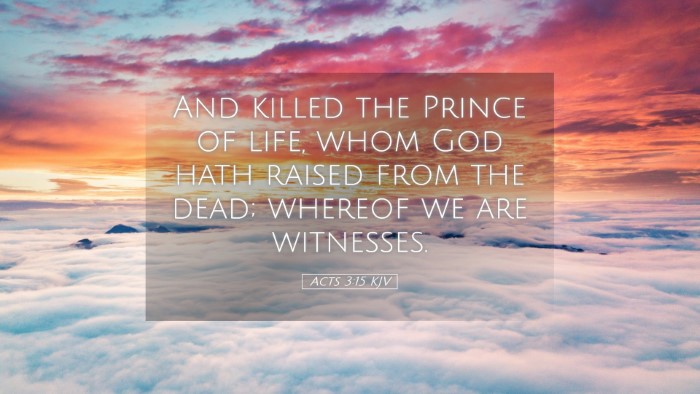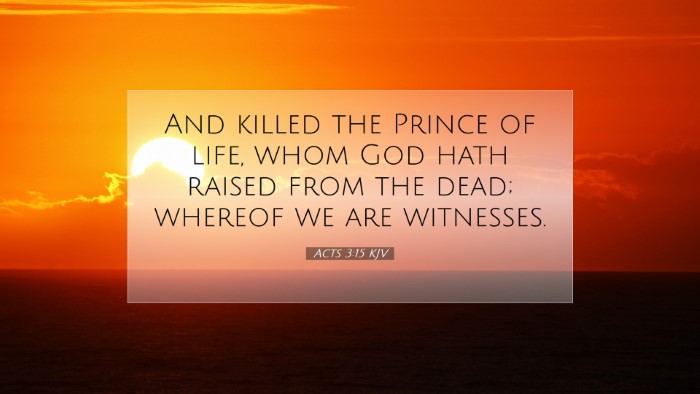Old Testament
Genesis Exodus Leviticus Numbers Deuteronomy Joshua Judges Ruth 1 Samuel 2 Samuel 1 Kings 2 Kings 1 Chronicles 2 Chronicles Ezra Nehemiah Esther Job Psalms Proverbs Ecclesiastes Song of Solomon Isaiah Jeremiah Lamentations Ezekiel Daniel Hosea Joel Amos Obadiah Jonah Micah Nahum Habakkuk Zephaniah Haggai Zechariah MalachiActs 3:15
Acts 3:15 KJV
And killed the Prince of life, whom God hath raised from the dead; whereof we are witnesses.
Acts 3:15 Bible Commentary
Commentary on Acts 3:15
Acts 3:15 states: "And killed the Prince of life, whom God hath raised from the dead; whereof we are witnesses." This verse is part of Peter's sermon following the miraculous healing of a lame man at the Temple gate. It highlights both the culpability of the Jewish people in the death of Jesus and the triumphant reality of His resurrection.
Contextual Overview
The context for this verse is critical for understanding its full implications. Acts 3 details an extraordinary miracle performed by the apostles, which provides them with an opportunity to preach the Gospel. Peter addresses the crowd, calling out their ignorance and the gravity of their actions in rejecting the Messiah.
Exposition of Key Themes
The Prince of Life
The term “Prince of life” bears significant theological weight. Matthew Henry notes that this title implies Christ's sovereignty over life itself. He is not merely a victim of death; rather, He is the origin of life, possessing the power to grant eternal life to those who believe.
Albert Barnes elaborates by mentioning that the Greek word used for "prince" (ἀρχηγός, archēgos) denotes one who leads or originates. This description underscores the concept of Jesus as the leader and bringer of spiritual life — a theme echoed throughout the Gospel accounts, notably in John 14:6 where He claims to be the way, the truth, and the life.
The Seriousness of Cruelty
The phrase “killed the Prince of life” serves both as an indictment and a beckoning to repentance. Adam Clarke comments on the gravity of the crime committed, highlighting that the act of crucifying Jesus was not merely a political act but a profound spiritual tragedy. This act of killing the one who gives life reflects the spiritually darkened state of those who chose Barabbas over their Savior.
Such candidness in addressing the audience's guilt is crucial for understanding the nature of repentance in the Christian narrative. The acknowledgment of having participated in the death of Jesus serves as a gateway for seeking forgiveness and recognizing the necessity of grace.
The Resurrection
Peter's declaration that “whom God hath raised from the dead” shifts the focus from death to life, from despair to hope. Matthew Henry emphasizes that the resurrection is central to the Christian faith and a validation of Christ's divinity and mission. The raising of Christ from the dead assures believers of their own future resurrection and serves as a foundation for their faith.
Albert Barnes also points out the importance of eyewitness testimony to the resurrection. Peter asserts that the apostles are witnesses to the resurrected Christ, which serves to provide credibility to their message. The importance of firsthand experience in sharing the Gospel cannot be overstated; the apostles' witness is the bedrock of the faith spreading throughout the early church.
Implications for Theology
Acts 3:15 invites deeper theological reflection regarding Christ's identity and the implications of His resurrection.
- The Nature of Christ: The verse reaffirms the dual nature of Christ — fully God and fully man. His title as the Prince of life underlines the sanctity and authority of His being.
- Understanding Sin: The recognition of complicity in the crucifixion speaks to the seriousness of sin. Each believer must confront their own role in the crucifixion narrative, leading to genuine contrition and repentance.
- Assurance of Faith: The resurrection is not just a historical fact but an assurance for believers. It is the foundation of Christian hope, bolstering faith in God’s promises concerning eternal life.
- Witnessing as a Call: The apostolic witness to the resurrection exemplifies the call each believer has to testify about Christ, elevating the necessity of evangelism within the church.
Conclusion
Acts 3:15 encapsulates essential Christian doctrines that are pivotal for pastors, students, and theologians alike. The interplay between guilt, grace, and the hope of resurrection is crucial for pastoral care, biblical teaching, and personal faith journeys. As followers of Christ engage with this text, they are reminded of their mission to bear witness to the life, death, and resurrection of Jesus Christ, the true Prince of life.


